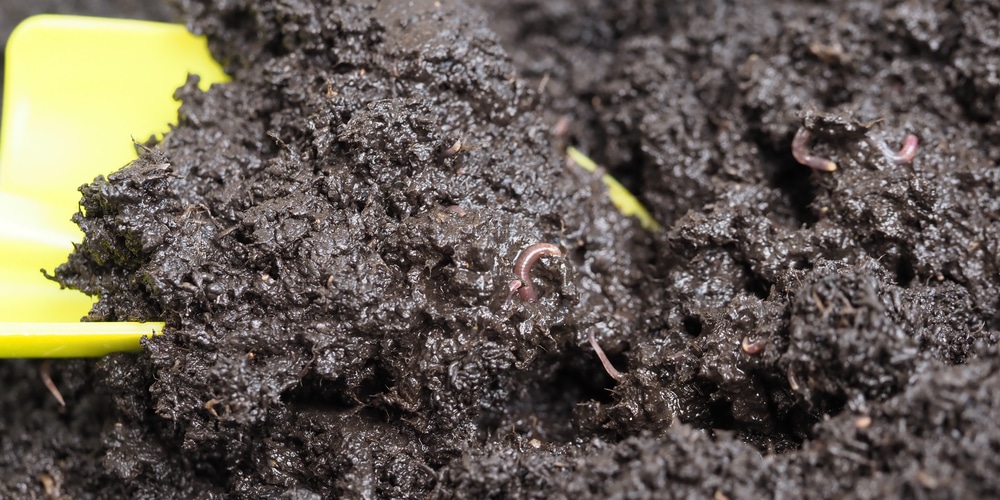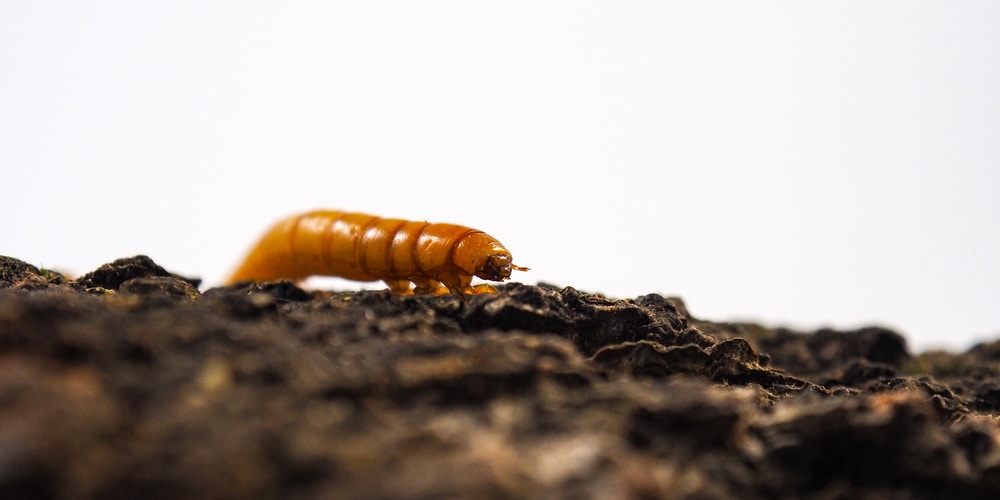Many homeowners make their own compost using food scraps, garden cuttings, fireplace ash, coffee grounds, and waste paper. Composting is an excellent way to reduce your carbon footprint and create a nutritious fertilizer that will help your plants thrive.
If you have a compost heap, it will likely attract insects and creepy crawlies such as mealworms. Mealworms aren’t harmful, although they don’t actually help plant growth. Mealworms feed on compost and are beneficial to the composting process.
If you’ve noticed mealworms in your compost, you may be wondering whether they are good or bad. Let’s find out whether having them in your compost is a problem.
Mealworms are generally considered good for your compost, although they do cause some issues
Worms in compost can be beneficial

Some composting systems use worms in order to speed up the composting process. Worms help with the biodegrading process and can enable nutrients to move around in the compost. While some gardeners add worms to their compost, in most cases, worms such as earthworms, mealworms, and red worms find their own way into compost. The most common kind of worm that’s found in compost is the red worm.
Are mealworms in compost good or bad?
Compost piles are tiny ecosystems that are home to various creatures and organisms. Some are good and help with the composting process, while others aren’t as beneficial. There will be a variety of fungi, bacteria, mold, insects, and worms in your compost heap. Mealworms are generally considered good for your compost, although they do cause some issues.
The benefits of mealworms in compost
Mealworms are commonly found in compost, and while they aren’t good for plants, they can help your compost to decompose. Mealworms aren’t actually worms; they are larvae and will grow into a darkling beetle. Mealworms feed on all types of organic matter and will eat decaying matter such as sticks, grass, and leaves. Although they prefer decaying matter, they do sometimes eat healthy plants. You’ll often find these tiny white bugs in the soil.
Dead organic matter that’s in a compost heap is an excellent food source for mealworms. They can help your compost decompose and turn into nutritional matter that will promote plant growth.
The disadvantage of mealworms in compost
The problem with mealworms is that they may be harder to control as they grow into beetles. It’s worth noting that once they are bettles, they won’t be beneficial for your compost, and you may find that there’s an infestation that needs controlling.
Some creatures such as possums, rats, mice, or raccoons find mealworms a tasty snack and maybe digging around in your compost bin. If the worms are killed by other insects and are left to rot, you may notice your compost bin will start to smell.
What to do if you have mealworms in your compost
When you have mealworms in your compost, populations of other insects will likely control them, and they will be killed and eaten. Infestation of mealworms is unlikely as they will be killed, eaten, or die off. As the weather starts to heat up, your compost bin will become very hot and won’t be a suitable environment for these worms. This will result in mealworm death which may give your compost a bad smell.
It’s also worth noting that there are many other worms or larvae that look very similar to mealworms and are beneficial to your soil. It’s not a good idea to try to control mealworms or other larvae with pesticides as this will pollute the environment and kill other beneficial worms and insects.
Conclusion
Mealworms are beneficial to compost as they help organic matter to decompose. However, they can cause other issues and may attract larger animals to your yard. In most cases, mealworm populations will control themselves and will likely die off as the weather gets warmer. If your compost heap is hot enough, there won’t be any insects or worms in it, as it will be an inhospitable environment. Heat is the fastest way to compost food scraps and cuttings, and waste from your yard.
Mealworms may not be very good for your yard as they can also eat live plants. If you spot one in your yard, it may be a good idea to put it in your compost bin.
